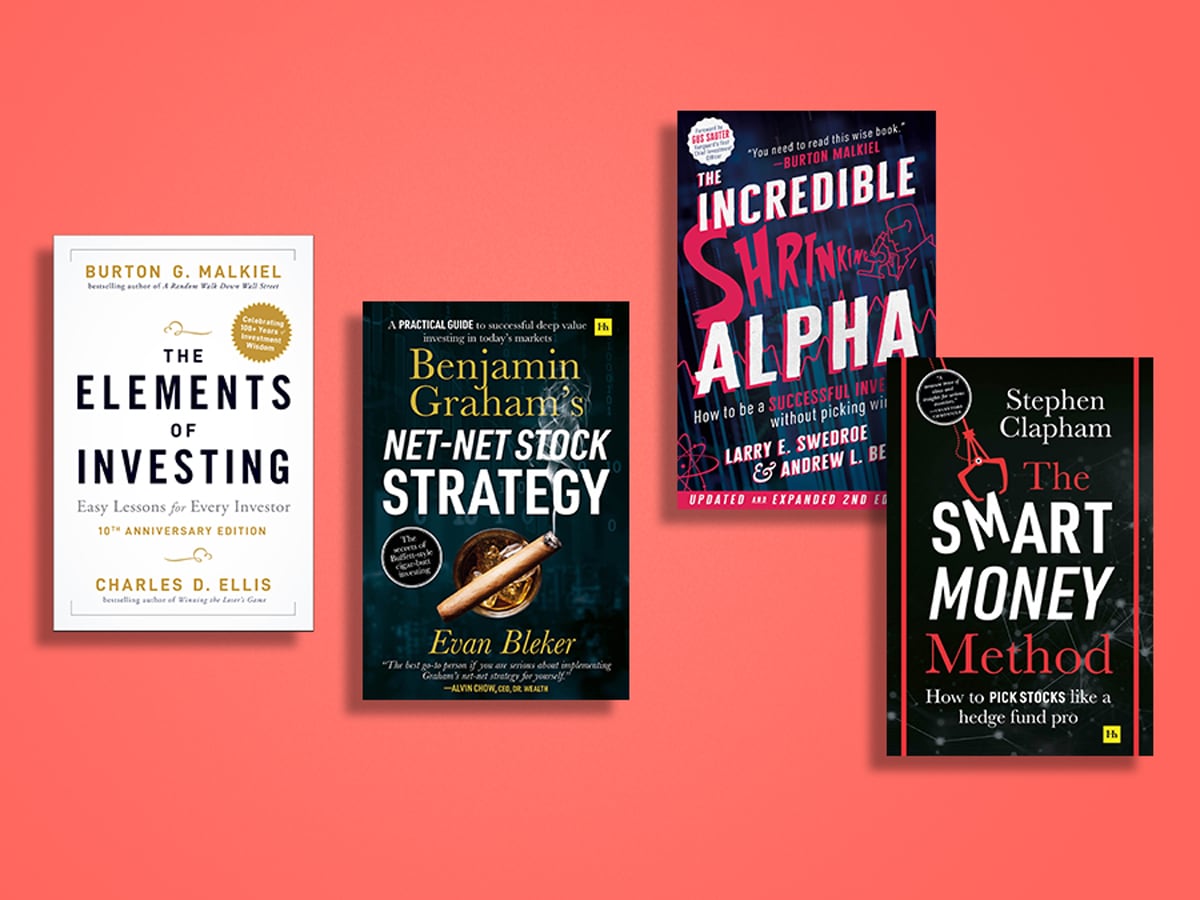Global stocks defied gravity in 2020. While markets opened the year on a strong footing, a short-lived bear market in March shook equities to lows so fast it marked the quickest decline in history.
The rebound that followed in the second and third quarters was driven by a stay-at-home trend propelling tech stocks to record heights in September, before valuations underwent a much-needed correction.
At the end of December, markets appeared to be rotating into a value run, as cyclical sectors look set to lead the recovery in 2021. With that in mind, investors could consider a new strategic approach.
Read on for Opto’s list of books to broaden or support your trading strategy.
The Smart Money Method: How To Pick Stocks Like A Hedge Fund Pro
By Stephen Clapham
Ever wanted to get the inside scoop on how top hedge funds pick stocks and build portfolios to make market beating returns? Stephen Clapham, founder of a research and consultancy firm called Behind The Balance Sheet, is a retired hedge fund equity analyst who spent 20 years in the industry.
His extensive experience in the area has made him a highly sought-after expert on the subject and his recently published book The Smart Money Method provides readers with a useful guide to understanding how smart money invests.
“The book gives these people a framework to use to avoid picking losers and hopefully will help them find winning investments,” he tells Opto, adding that it explains the methodology he developed to look at stocks when working for multi-billion hedge funds.
By Evan Bleker
Picking stocks based on a growth or value strategy is one of the oldest ways to build a portfolio. As global stock markets begin to show signs of a rotation towards value, what better time to revisit great teachings from the “father of value investing”, Benjamin Graham.
Graham is an influential investor who many experts look to when building out a value investing approach. Evan Bleker, a professional investor who founded the Net Net Hunter, has spent 10 years studying Graham’s strategy and successfully beat the market using a net-net strategy.
In his book Benjamin Graham’s Net-Net Stock Strategy, Bleker provides readers with a blueprint to find the “best value investing strategies ever created”.
The Incredible Shrinking Alpha: How To Be A Successful Investor Without Picking Winners
By Andrew Berkin and Larry Swedroe
“There are many myths about active investing [being] the winning strategy,” Larry Swedroe, the chief research officer of Buckingham Strategic Wealth and Buckingham Strategic Partners, tells Opto.
"There are many myths about active investing [being] the winning strategy" - Larry Swedrow
In an effort to debunk some of them, he has co-authored this book with Andrew Berkin, director of research at Bridgeway Capital, about how active management strategies are increasingly underperforming market benchmarks.
In this expanded second edition, Swedroe looks to warn the public about “just how much the odds are stacked against you if you choose active management”. The book shows readers how they can implement systematic investment vehicles, such index funds, into their own investment plan.
The Elements Of Investing: Easy lessons For Every Investor
By Burton Malkiel and Charles Ellis
Burton Malkiel, an economist and renowned author of A Random Walk Down Wall Street, and Charles Ellis, founder and former management partner of Greenwich Associates, are both esteemed market experts, who share the opinion that “successful investing should not be a province of a select few”. Both agree that it’s often the simplest approach that is the toughest to beat.
After a dinner in Princeton with friends, Ellis broached the idea of writing a “super short book that tells investors what they need to know”. Indeed, the two investors agreed on “almost everything in investing” and soon had written The Elements Of Investing, which was published in 2009.
To celebrate the 10th anniversary of this permanent fixture in investing literature, which Wiley published in September, Malkiel and Ellis provide readers with a helpful companion to any investing journey.
Disclaimer Past performance is not a reliable indicator of future results.
CMC Markets is an execution-only service provider. The material (whether or not it states any opinions) is for general information purposes only, and does not take into account your personal circumstances or objectives. Nothing in this material is (or should be considered to be) financial, investment or other advice on which reliance should be placed. No opinion given in the material constitutes a recommendation by CMC Markets or the author that any particular investment, security, transaction or investment strategy is suitable for any specific person.
The material has not been prepared in accordance with legal requirements designed to promote the independence of investment research. Although we are not specifically prevented from dealing before providing this material, we do not seek to take advantage of the material prior to its dissemination.
CMC Markets does not endorse or offer opinion on the trading strategies used by the author. Their trading strategies do not guarantee any return and CMC Markets shall not be held responsible for any loss that you may incur, either directly or indirectly, arising from any investment based on any information contained herein.
*Tax treatment depends on individual circumstances and can change or may differ in a jurisdiction other than the UK.
Continue reading for FREE
- Includes free newsletter updates, unsubscribe anytime. Privacy policy


